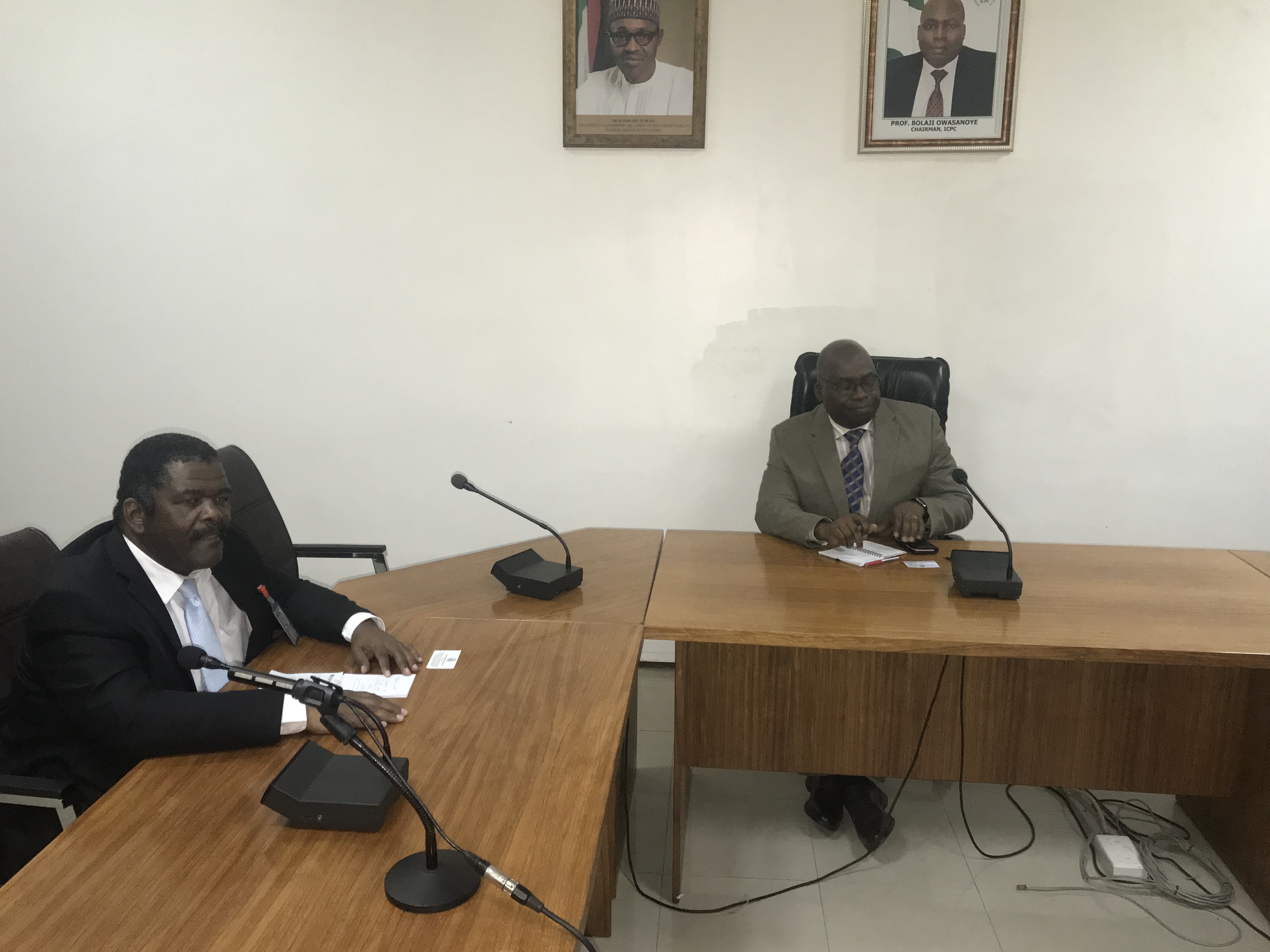The High Commissioner of the Federal Republic of Namibia in Nigeria, Humphrey Desmond Geiseb, has stressed the need for Nigeria to win the war against corruption, saying that the country’s success as a “natural leader on the continent” would help other African countries succeed in their own anti-corruption efforts.
Geiseb made the remark at the Abuja headquarters of the Independent Corrupt Practices and Other Related Offences Commission (ICPC) recently while on a courtesy and familiarization visit.
He commended Nigeria for its exemplary role in the fight against corruption in Africa, noting that no country in the continent was spared of corruption.
The High Commissioner asserted that Africa as a whole needed to come together to fight the menace called corruption, revealing that Namibia also had an anti-corruption agency known as the Anti-Corruption Commission of Namibia (ACC), which would love to learn about the success story coming from Nigeria, especially in the recovery of stolen assets. The High Commissioner proposed that ICPC and his country’s ACC engage in an exchange programme that would be mutually beneficial: “Our country would like to learn how you are fighting corruption; your challenges and all. Your team could also go to Namibia to pick one or two things in the way we do our thing”, he said.
Geiseb used the opportunity to congratulate ICPC on the just concluded ‘African Union Anti-Corruption Day Celebration,’ noting that there were common areas in which African countries had particular problems like ‘Funds allocated for specific purpose not being utilized for it’ which was widespread on the continent.
“We are convinced that we need to hold hands as African countries to solve common problems of corruption besetting us”, he opined, noting that this could be achieved through the sharing of information by the countries.
He pledged his continued participation in future Anti-Corruption Day celebrations by the Commission.
ICPC Chairman, Prof. Bolaji Owasanoye, in his speech during the visit, highlighted the three prongs of the Commission’s mandate namely: Enforcement; Prevention; and Public Enlightenment and Education, explaining that it was the only anti-corruption agency whose mandate fulfilled the 3 “Ss” of Sanctions, System and Society for the effective curbing of corruption.
Owasanoye listed some of the challenges Nigeria was facing as human capital deficit, diversion of budgetary allocation for capital projects, inflation of budget (padding) and diversion of funds.
However, to tackle them, he said that the Commission had come up with several measures, prime amongst which was the Constituency Project Tracking Group (CPTG) initiative to help monitor the use of funds and ensure the completion of government projects.
He further said that the idea of CPTG was to make legislators more accountable, while ensuring that citizens got value for money invested on such constituency projects.
Owasanoye applauded the President Buhari-led administration, saying that it had shown great political will to fight corruption and thus assisted the Commission in its drive through better public awareness. ‘Because of this we have corruption news reported daily’, he stated. He further expressed his delight with the High Commissioner’s proposal for information sharing and capacity building exchange programme, saying that ICPC would gladly participate.
On the AU Anti-Corruption Day which was recently celebrated, the ICPC boss said that the aim was to build relationships among African countries, looking at the continental issues in meeting the Sustainable Development Goals (SDGs) and the recovery of funds stolen by Politically Exposed Persons.

